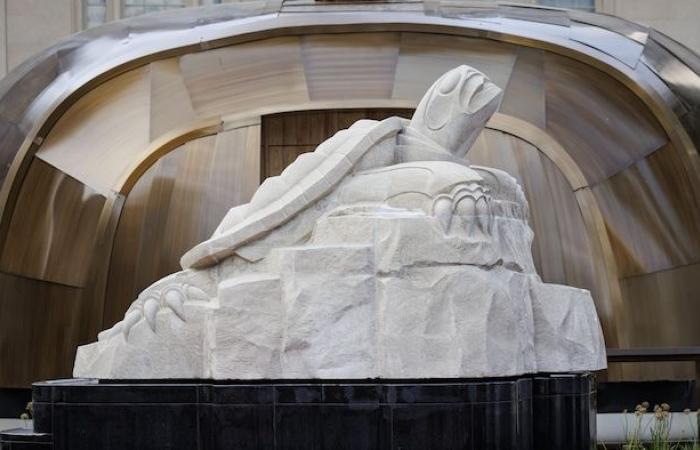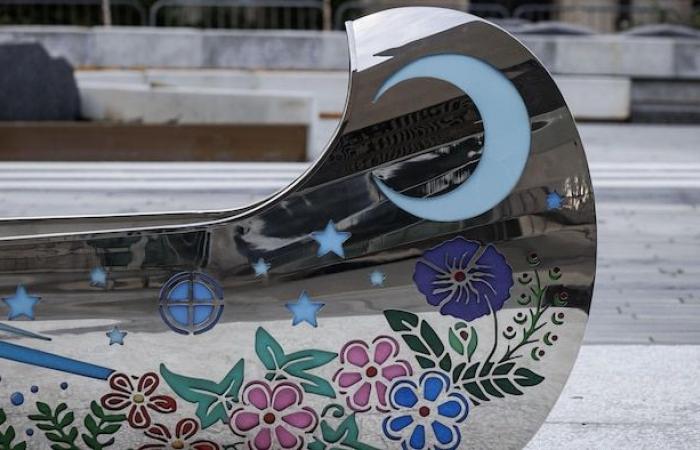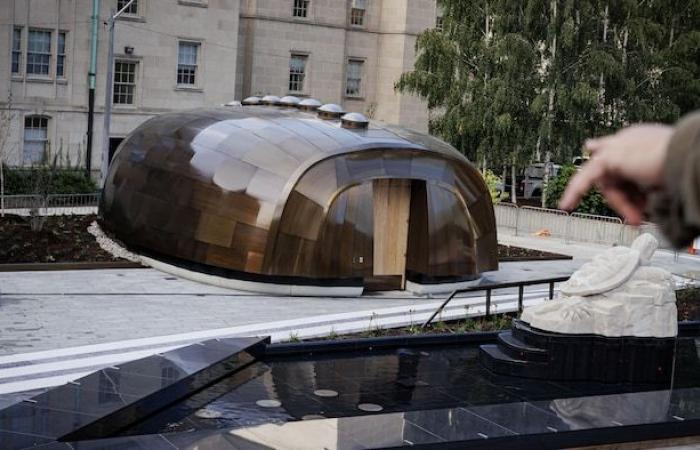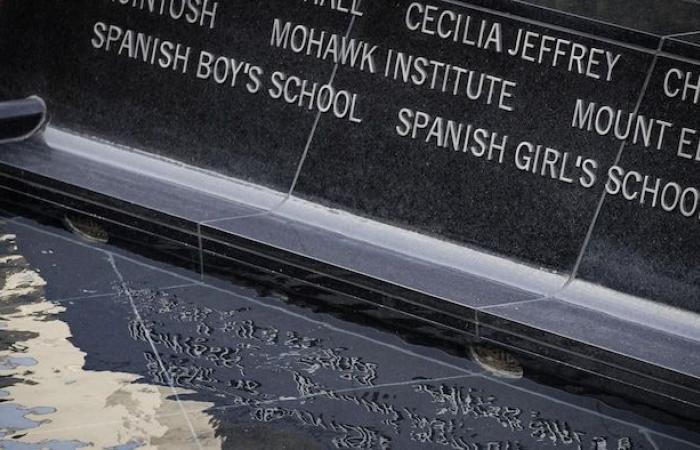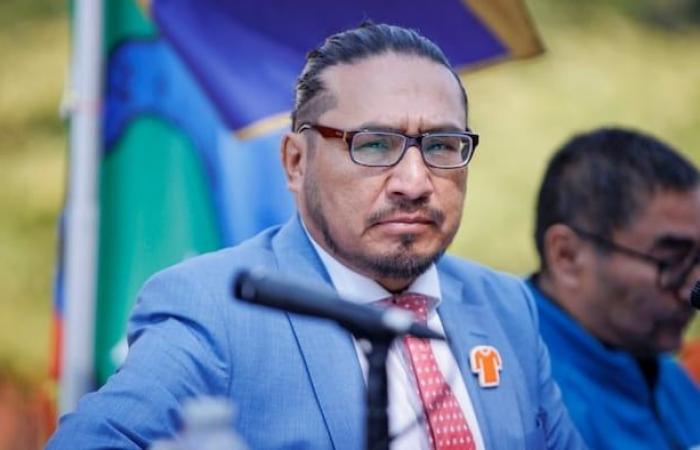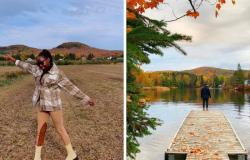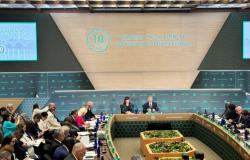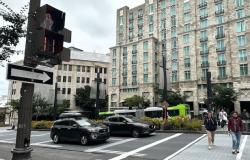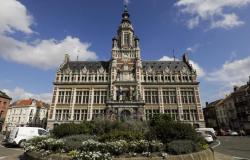Toronto marks the National Day for Truth and Reconciliation on Monday with ceremonies, cultural activities and especially with the opening of the Spirit Garden set up on the grounds of city hall.
The creation of this public garden is intended to be a response to calls for action from the Truth and Reconciliation Commission. According to the City, the objective is to honor the survivors and children who died in residential schools, but also to create a place for learn, share, teach and heal
.
The Toronto Council Fire Native Cultural Centrepartner of the City in the project, adds that the place Nathan Phillips, in the city center, was chosen because it is publicly accessible and highly visible to celebrate the resilience of survivors and their families
.
Open in full screen mode
The turtle sculpture representing Earth was created by Solomon King, an Anishinaabe artist from Neyaashiinigmiing, Ontario.
Photo: The Canadian Press / Evan Mitsui
What Canada did was shameful, horrible: taking children from their parents, eliminating culture, arts, language, history.
As we ask for forgiveness and ensure the truth is told again and again, we must also work hard to ensure that there are no more boil water advisories, no more homelessness, he added. She. To ensure that culture and the arts are celebrated because they are incredibly rich and uplifting.
The garden includes a small building and works by indigenous artists, including a huge turtle, a reference to the creation story, according to indigenous people.
The place also celebrates the diversity of First Nations, Inuit and Métis traditions.
Open in full screen mode
“The Spirit Canoe,” a stainless steel sculpture by Anishinaabe and Métis artist Tannis Nielsen Métis, pays homage to Métis travelers.
Photo : Radio-Canada / Evan Mitsui
John Keeshig Maya-waasige, an Anishinaabe knowledge keeper, designed the wooden pavilion which can accommodate 60 people. He explains that inside, the structure evokes generations past and those that will follow. It is for them that we have this pavilion, he said. I want to thank the survivors, they are the ones who motivate us.
John Keeshig Maya-waasige highlights the resilience of indigenous peoples.
Our mothers, our aunts encouraged us. If you fall, you get up, my mother said. It’s us. These are our people.
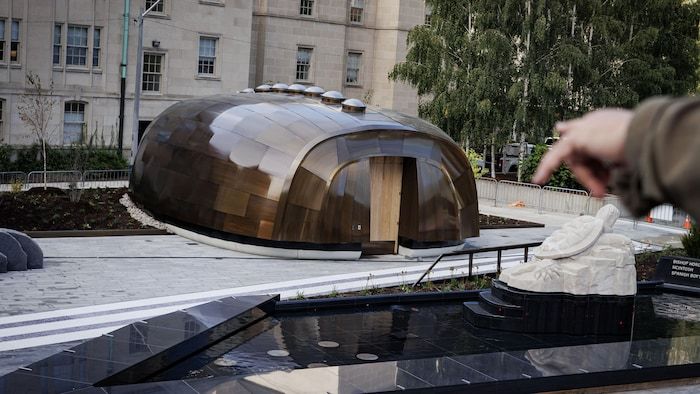
Open in full screen mode
The pavilion will notably be a spiritual place that recalls the importance of family and one’s journey through life.
Photo : Radio-Canada / Evan Mitsui
The names of the 18 Aboriginal residential schools that existed in Ontario are written on a garden wall and reflected in the water basin.
It is estimated that starting in the 19th century, more than 150,000 indigenous children across the country were taken from their families and sent to these residential schools run by religious communities where neglect, abuse and assault were common.
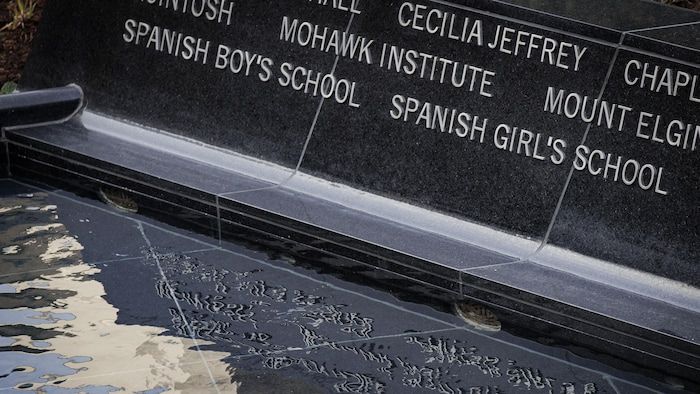
Open in full screen mode
The names of Ontario’s 18 residential schools are inscribed on a low wall.
Photo : Radio-Canada / Evan Mitsui
As Ontarians, it is important that we continue to deepen our collective understanding, to honor those who survived and remember the thousands of children who never returned home
said Ontario Premier Doug Ford and his Minister of Indigenous Affairs, Greg Rickford, in a written statement.
The Ontario government emphasizes the importance of recognize those in Indigenous communities who are leading the difficult and traumatic work surrounding residential school grave site investigations
.
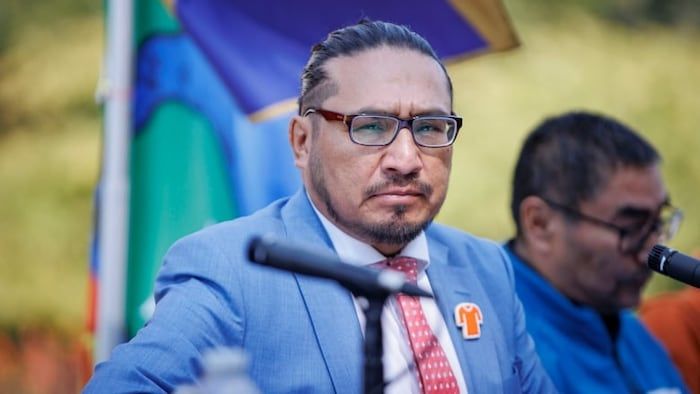
Open in full screen mode
Northern Ontario MP Sol Mamakwa wants Truth and Reconciliation Day to be a public holiday for everyone in the province.
Photo : (Evan Mitsui/CBC)
However, some organizations which search archives and carry out field examinations to find anonymous burials deplore that research is stalling, due to a lack of sufficient government financial support.
National Day for Truth and Reconciliation is not a paid holiday for all workers in Ontario. The only indigenous member of the Legislative Assembly, Sol Mamakwa, intends to present a private bill, in his mother tongue, so that she becomes so.

